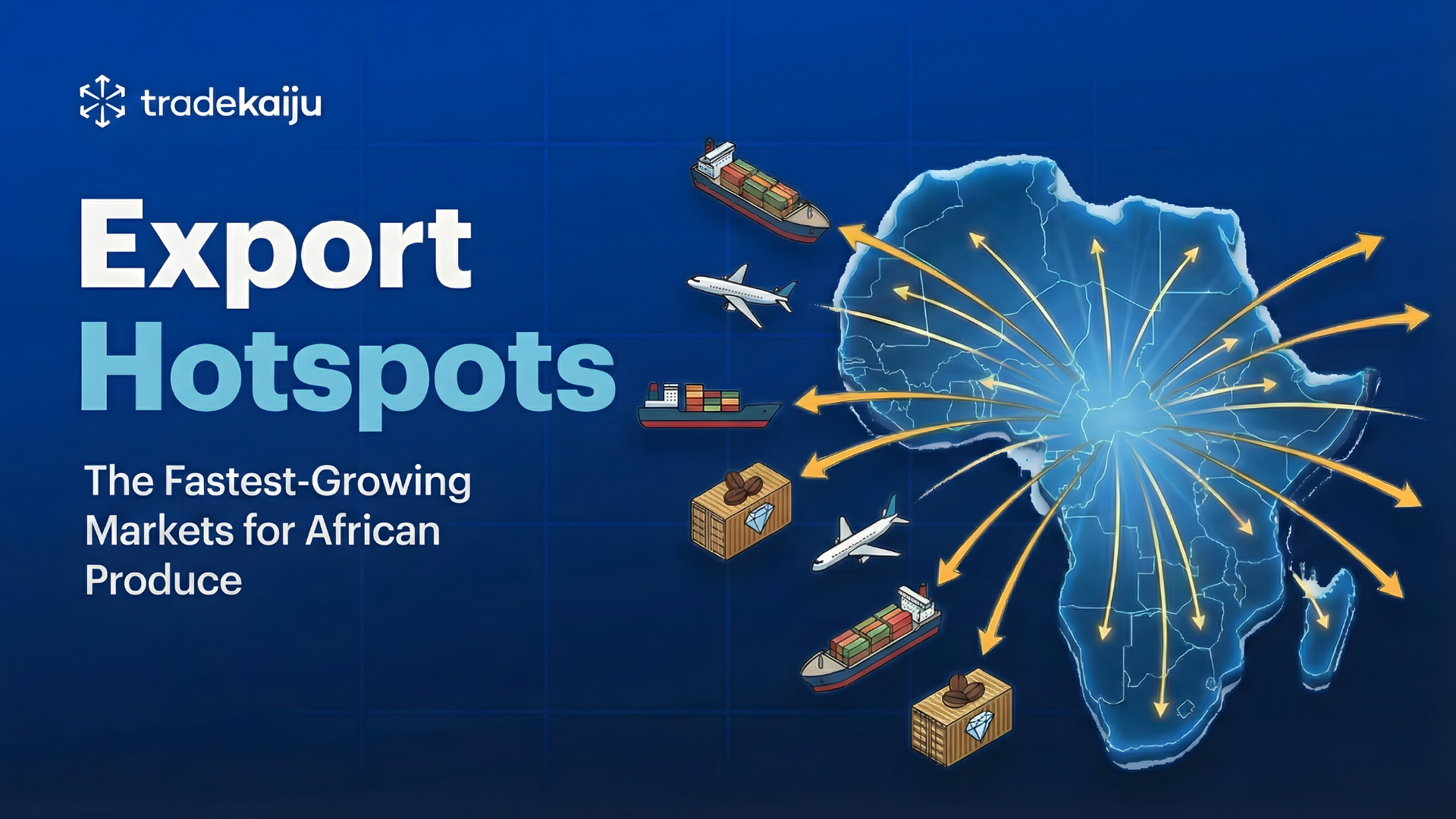Exploring the Undervalued Export Potential of Cassava in Nigeria
Date Posted: 2025-07-07 23:30:51
_1751931051.png)
Cassava is one of Nigeria’s most cultivated crops, yet it remains one of the most underutilized in terms of export potential. Despite being the world’s largest producer of cassava (with over 60 million metric tons annually), Nigeria’s share in the global cassava export market is surprisingly low. This leaves many wondering why cassava export has not yet reached its full potential in the country, and what can be done to unlock its vast possibilities.
So now, why is cassava export still undervalued in Nigeria, and what can be done to harness its full potential?
The Untapped Goldmine in the Cassava Value Chain
Cassava is a versatile crop with various industrial and food applications. From food staples like garri, fufu, and cassava flour to industrial uses such as ethanol, starch, animal feed, and biofuel, cassava holds massive value beyond domestic consumption.
However, the current value chain is largely informal, fragmented, and lacks the infrastructure and policies that can position Nigeria as a global cassava export hub.
Challenges Limiting Cassava Export in Nigeria
The reason for cassava's limited export success in Nigeria is rooted in a number of factors, some of which are outlined below.
Firstly, the reliance of Nigerians on cassava as a staple food has kept the crop's export potential suppressed. A huge percentage of the produce is consumed locally making it difficult to leverage the crop's value as an export commodity.
Lack of awareness and limited exposure to international markets has left many Nigerian farmers and entrepreneurs in the dark, making them unable to realize the high global demand for cassava products beyond Nigerian borders and this has resulted in a missed opportunity for economic growth.
Additionally, cassava requires robust infrastructure, including proper storage facilities, transportation, and processing plants. The absence of these modern processing equipment limits farmers’ ability to produce export-grade derivatives like industrial starch, chips, or ethanol, thereby limiting their competitiveness in the global market.
Short Shelf Life: Raw cassava deteriorates rapidly after harvest, requiring immediate processing. This limits its suitability for long-distance exports unless value-added products are made.
Low Investment in Research & Market Linkage: Many farmers lack awareness of cassava export opportunities, international demand trends, or technical knowledge needed to scale production and processing.
Firstly, the reliance of Nigerians on cassava as a staple food has kept the crop's export potential suppressed. A huge percentage of the produce is consumed locally making it difficult to leverage the crop's value as an export commodity.
Lack of awareness and limited exposure to international markets has left many Nigerian farmers and entrepreneurs in the dark, making them unable to realize the high global demand for cassava products beyond Nigerian borders and this has resulted in a missed opportunity for economic growth.
Additionally, cassava requires robust infrastructure, including proper storage facilities, transportation, and processing plants. The absence of these modern processing equipment limits farmers’ ability to produce export-grade derivatives like industrial starch, chips, or ethanol, thereby limiting their competitiveness in the global market.
Short Shelf Life: Raw cassava deteriorates rapidly after harvest, requiring immediate processing. This limits its suitability for long-distance exports unless value-added products are made.
Low Investment in Research & Market Linkage: Many farmers lack awareness of cassava export opportunities, international demand trends, or technical knowledge needed to scale production and processing.
Global Demand Is Rising
Countries like China, the Netherlands, Germany, and Thailand have shown growing interest in cassava products like cassava chips, pellets, and starch for industrial use. The global cassava starch market alone is projected to reach $66 billion by 2027, driven by demand in textiles, paper, food, and pharmaceuticals. Nigeria can tap into this booming demand with the right strategies.
Opportunities for Nigeria
Here’s how Nigeria can unlock the full export potential of cassava:
Invest in Processing & Storage: Establishing agro-processing clusters and small-scale processing plants across cassava-producing regions will allow the country to produce high-value export-ready products.
Promote Contract Farming & Aggregation: Linking smallholder farmers with processors and exporters can ensure a steady supply of quality raw materials and reduce post-harvest losses.
Leverage Trade Platforms: Online agro-trading platforms like TradeKaiju can connect Nigerian cassava producers to global buyers, provide real-time market data, and reduce middlemen exploitation.
Government Incentives: Export-friendly policies, subsidies on equipment, and partnerships with development agencies can encourage more players to enter the cassava export space.
Invest in Processing & Storage: Establishing agro-processing clusters and small-scale processing plants across cassava-producing regions will allow the country to produce high-value export-ready products.
Promote Contract Farming & Aggregation: Linking smallholder farmers with processors and exporters can ensure a steady supply of quality raw materials and reduce post-harvest losses.
Leverage Trade Platforms: Online agro-trading platforms like TradeKaiju can connect Nigerian cassava producers to global buyers, provide real-time market data, and reduce middlemen exploitation.
Government Incentives: Export-friendly policies, subsidies on equipment, and partnerships with development agencies can encourage more players to enter the cassava export space.
In conclusion, although Nigeria's cassava export potential is currently undervalued, there is still room for growth and development. Nigeria can transform its cassava industry into a global powerhouse and diversify its export earnings beyond oil. By tackling the challenges and seizing these opportunities, Nigeria can establish itself as a top exporter of cassava and its derivatives, thereby boosting the economy of the nation.
Are you a cassava farmer, processor, or exporter looking to scale your agribusiness? Join TradeKaiju today to access market insights, connect with global buyers, and start trading smarter.
Similar Blog Posts

In today’s fast-moving trade environment, guessing is no longer a strategy. Gone are the days when traders relied sole

Africa’s agricultural sector is on the rise, and so is global demand for its produce. As the continent continues to bu

Africa isn’t just a participant in the global commodity market, it’s a driver. The continent holds: 30% of the worl